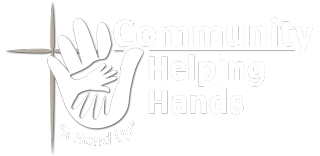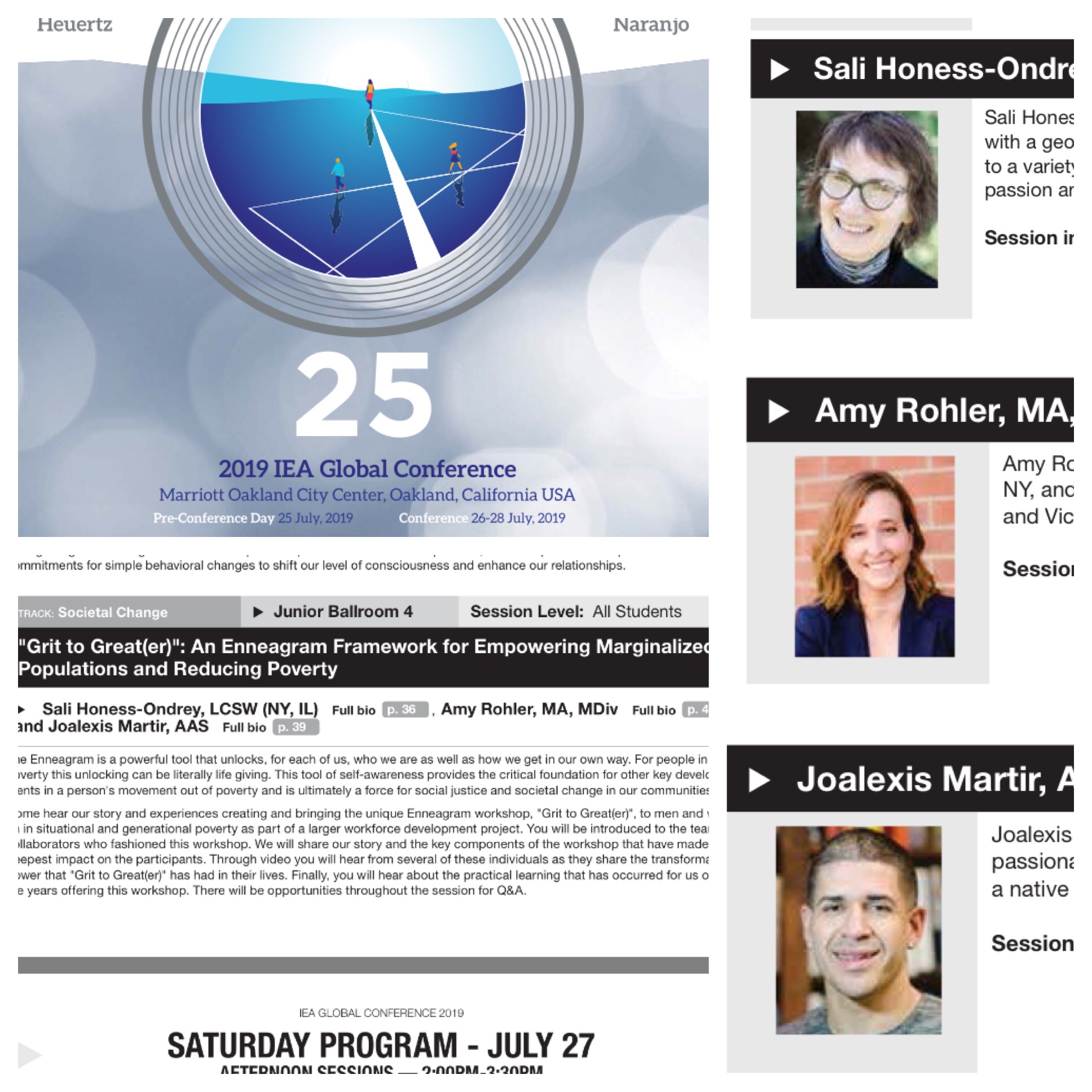“Cultivating Grit: Jamestown Organization to Present at International Conference”
It began as an experiment in leadership development nearly three years ago, and if you had told this team from Community Helping Hands that they would be presenting on their innovative work with individuals in poverty at the International Enneagram Conference in Oakland, CA …. They probably would have laughed. Or maybe cried. During the last weekend in July 2019, Sali Honess-Ondrey, Joalexis Martir and former Executive Director Amy Rohler will travel to Oakland, CA for the 25th Annual Global Conference of the International Enneagram Association (https://www.internationalenneagram.org/iea-global-conference-2019-oakland-ca/). At the conference, along with nearly 50 other presenters on varied tracks such as “Business,” “Societal Change,” “Personal Development” and “Spiritual Applications,” they will share their experiences of utilizing the Enneagram, a personality typing tool, to do workforce development to empower individuals in deep and generational poverty.
The Enneagram is a model of the human psyche which is principally understood and taught as a typology of nine interconnected personality types. It has its roots in antiquity and has been traced back to the region of Mesopotamia. In the 1960s it re-entered the mainstream when Bolivian philosopher Oscar Ichazo used it to explain the human psyche. It was brought to the U.S. and popularized by a student of his, American-taught psychologist Claudio Naranjo (the keynote speaker at the 2019 Conference in Oakland), in 1971. In 2013, CNN Business reported that although it has been primarily used in therapy and education, corporations and businesses have been using it for leadership development to foster collaboration and conflict management (https://www.cnn.com/2013/03/13/business/enneagram-personality-types/index.html). A 2011 study by Enneagram in Business covering 72 companies, including Best Buy, Daimler-Mitsubishi, Toyota and Avon, found that using the enneagram led to better communication and collaboration, rising sales, and increase in employee engagement. One CEO called it the “language for figuring out what gets in the way of change and progress.”
What would happen if you used this tool for self-awareness and self-discovery with people in poverty? Would it have any impact? Would it also help people understand what got in the way of personal change and progress when it came to mobility out of poverty? These were the questions that the “Grit to Great(er)” Workshop (developed by the team at Community Helping Hands) set out to explore. The workshop was initially part of a larger CHH workforce development pilot funded by local foundations, including the Chautauqua Regional Community Foundation, the Ralph C. Sheldon Foundation, the Lenna Foundation and the Cummins Foundation. In 2018, it was eventually funded by the Empire State Poverty Reduction Initiative (ESPRI). Participants take an initial assessment to determine their personality type and then spend 14 hours over a period of 2 weeks exploring self-awareness, their personal strengths and defenses, the nine Enneagram “types,” and eventually develop an individualized action plan oriented toward personal or career goals. Of the 28 participants who have completed the workshop since January 2018, 17 have found sustainable employment or have furthered their education. Nearly all have found the experience valuable and life changing, as evidenced by the video testimonials they will share at their IEA Conference presentation.
Joalexis Martir, Work Success Coordinator at CHH since 2017, says that The Grit to Great(er) Workshop is an effective tool in his work giving individuals a hand up. “I kept seeing this quality in the people we were working with — ‘grit’ — a desire to keep going, to do better. Now when I spy this grit I can offer this workshop to help them take that next step toward success. The Enneagram has proven to be a path to building the necessary foundation for lasting growth. For me, it provides the right language to talk about what I can see in them, and now they see in themselves.”
Originally from Puerto Rico, Martir recruits and assesses participants’ readiness, provides support and coaching while participant’s engage with the workshop, and then follows up to help them secure and retain employment. The workshop’s main goal, according to Martir, is to get people, who have been out of the workforce, to enter the workforce with a strong sense of what they have to contribute.
A key part of their presentation at the IEA Global Conference will be sharing best practices and principles, as well as challenges, for working with marginalized populations. Their Conference presentation is entitled “Grit to Great(er): An Enneagram Framework for Empowering Marginalized Populations and Reducing Poverty.”
Sali Honess-Ondrey, who designed and facilitates the Grit to Great(er) workshop at Community Helping Hands, is a Licensed Clinical Social Worker and a Certified Enneagram Trainer. She has also been a volunteer at CHH since 2012 and remembers how struck she was by the culture at Community Helping Hands. “Community Helping Hands sees and values everyone who comes through the door and invites them to be a significant part of their community. It’s a remarkable place of belonging.” According to Honess-Ondrey, the Grit to Great(er) workshop invites those who have received far too little positive encouragement to experience themselves in a new and life changing way.
Honess-Ondrey is thrilled their proposal was chosen, and is excited to share their experiences in a larger setting. Coincidentally, they will be meeting with Fr. Richard Rohr the week before their travel, who will be the Interfaith Lecturer during week four at the Chautauqua Institution and is the founder of the Center for Action and Contemplation. In 1990 Rohr published the highly influential book “The Enneagram: a Christian Perspective.” He has used the Enneagram extensively in his teaching and writing. According to Amy Rohler, former Executive Director of Community Helping Hands (who now works for United Way of Southern Chautauqua County), “The purpose of meeting Rohr is to share with him this innovative use of the Enneagram. His feedback, as someone who has worked with the Enneagram for years, will be incredibly valuable.” Rohler, Martir and Honess-Ondrey will meet with him, along with some of the individuals who have taken the Grit to Great(er) Workshop. “It’s important that Fr. Rohr hears about the impact of this use of the Enneagram from the participants themselves,” added Rohler, “it’s their voices that matter the most.”
For more information about Community Helping Hands, please visit www.chhny.org or call (716) 487-1488. For information about scheduling an Enneagram workshop at your organization, contact Sali Honess Ondrey at salihonessondrey@gmail.com or through her website, https://salihonessondrey.com/

